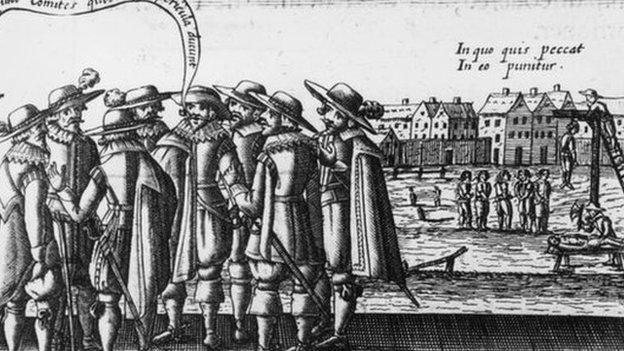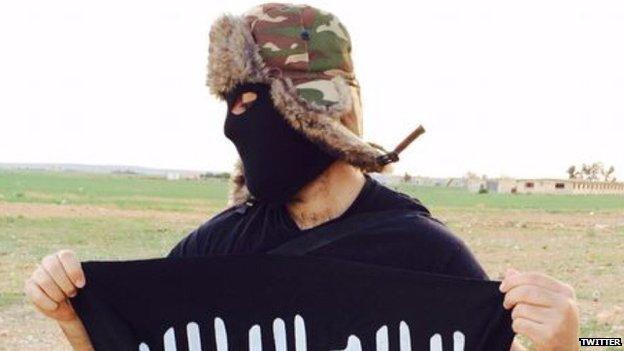Could British jihadists be guilty of treason?
- Published

Hundreds of UK jihadists are fighting under the banner of so-called Islamic State in Syria and Iraq
It's a crime no one has committed for more than sixty years, but British jihadists who go to fight in Syria and Iraq could find themselves prosecuted for treason.
The Foreign Secretary, Philip Hammond, says by swearing "personal allegiance to so-called Islamic State" they could be being disloyal to the UK.
At least 500 British people are thought to have gone to fight abroad, although the government says it doesn't know the exact number.

People were hanged and dismembered after a plot to murder Queen Elizabeth I in 1586
What is treason?
It is one of the most famous crimes in English history. Guy Fawkes, the man behind the Gunpowder Plot to blow up the Houses of Parliament on 5 November 1605 and the reason we celebrate Bonfire Night, was tried for it. Back in the 13th Century treason included things like running from battle, plotting the death of your King or Lord and sleeping with the Lord's wife or daughter. In 1351 a law was brought in which said "you can't kill, conspire against or wage war against the king and his family." That still stands today.
How is it punished?
Back in the 13th Century it was punished by being hung, drawn and quartered. The traitor was pulled across rough ground by a horse, then hanged until just before death, then their insides were torn out, they were burnt and beheaded. Their body, or what was left of it, was then cut into four pieces. These days the maximum punishment is life in prison.

There are a number of offences with which returning foreign fighters can be charged.
When was treason last used?
In 1946 a man called William Joyce was the last person to be tried for and convicted of High Treason in the UK. It was down to his links with the Nazis in the second world war. He was hanged.
How likely is it that British jihadists will be tried for treason?
The Foreign Secretary, Philip Hammond, says there are "a number of offences under English law with which returning foreign fighters can be charged". So, treason is just one of them and the Home Secretary has the final decision on this.